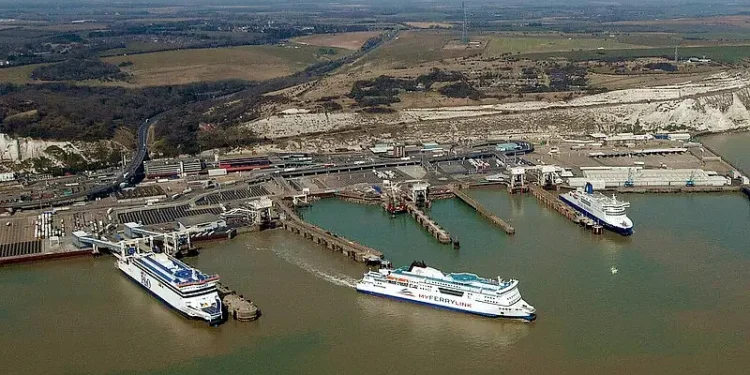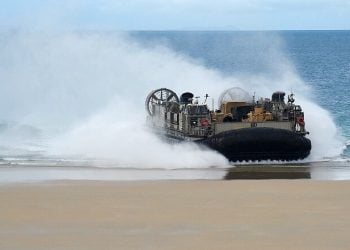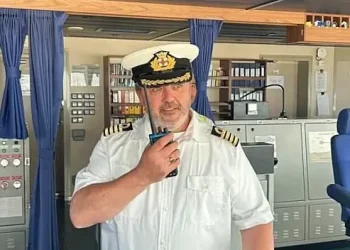Announced today by the Maritime Minister, Mike Kane, new green shipping corridors will connect major European cities like Amsterdam, Dublin, and Copenhagen, creating exclusive routes for zero-emission vessels.
With up to £9 million in funding, this initiative aims to revolutionize the shipping industry while securing green jobs and promoting sustainable travel.
A New Era for Maritime Travel
The UK’s Department for Transport (DfT) is investing in green shipping routes designed to reduce emissions and drive the maritime sector towards sustainability. These routes, or “green corridors,” are zero-emission maritime pathways connecting two or more ports, supporting only clean-powered vessels.
This strategic move builds on the Clydebank Declaration launched at COP26, where the UK led efforts to develop such sustainable corridors.
Maritime Minister Mike Kane highlighted the importance of this project, stating,
“Shipping is a big contributor to global greenhouse gas emissions, so these new green corridors could be a real game changer for industry.”
His remarks emphasise the urgency of the initiative, aiming to make the UK a “clean energy superpower.”
Routes and Investments
The government’s plan involves setting up green routes between several major ports, including the Port of Tyne to Ijmuiden in the Netherlands and the Port of Holyhead to Dublin in Ireland.
Additional corridors to Norway and Denmark are also in development. This expansion represents an important step toward a cleaner, more efficient maritime industry.
Route |
Countries Connected |
Investment (Up to) |
|---|---|---|
| Port of Tyne to Ijmuiden | UK & Netherlands | £9 million |
| Holyhead to Dublin | UK & Ireland | (Funded under CMDC5) |
| UK to Norway/Denmark | UK & Scandinavian Countries | (Details TBA) |
The funding comes as part of the fifth round of the government’s Clean Maritime Demonstration Competition (CMDC5), which focuses on driving innovative solutions and technologies to decarbonise the industry and boost the economy.
Matt Beeton, CEO of the Port of Tyne, expressed his support, noting,
“This important green infrastructure will ensure that the Port of Tyne and the Port of Ijmuiden are supporting decarbonised routes between the North East of England and Europe with the aim of saving up to 850,000 tonnes of CO2 annually.”
Driving Innovation and Green Jobs
The UK government is not only focused on building sustainable routes but also on positioning the country as a leader in maritime innovation. As part of the CMDC5 initiative, match funding of up to £8 million has been allocated to 30 projects across the nation.
These projects aim to accelerate the adoption of smart technologies, including AI, robotics, and autonomous systems, to transform the maritime sector.
This funding serves several purposes:
- Encourages the development of advanced, zero-emission vessels.
- Supports economic growth through job creation in coastal communities.
- Enhances the UK’s technological edge in maritime innovation.
Ian Davies, Head of UK Port Authorities at Stena Line, commented on their project between Wales and Ireland, stating,
“We’re delighted to have been awarded this funding to explore establishing the first ‘green corridor’ between Wales and Ireland.”
Such initiatives are not just about advancing technology; they also secure the future of jobs in the maritime sector, making it a cornerstone of the UK’s green economy.
Benefits for Passengers and Industry
These corridors promise to transform travel for passengers, offering cleaner, greener options for those journeying between the UK and Europe.
Moreover, zero-emission vessels will provide a more sustainable mode of transport, thereby contributing to environmental goals and significantly reducing the carbon footprint of international travel.
Consequently, this innovation will have a profound impact on the future of transportation, fostering a more eco-friendly travel landscape.
These corridors are not limited to passenger ferries. The new routes will also accommodate freight, which is expected to significantly reduce emissions in the “fast shipping” industry—a sector historically known for its high greenhouse gas output.
Future Prospects: More Than Just Green Routes
The green corridors are just one piece of a larger strategy. Innovate UK, a key partner in delivering the UK SHORE programme, has been instrumental in promoting tech solutions that drive maritime decarbonisation.
Mike Biddle, Executive Director for Net Zero at Innovate UK, said,
“The maritime sector is under immense pressure to decarbonise its transport and process methods. Innovate UK is proud to be a key delivery partner for DfT’s UK SHORE programme.”
This partnership is paving the way for innovations such as:
- Smart shipping drones: Improving efficiency and reducing emissions.
- Methanol-fueled vessels: Offering an alternative to traditional fuels.
- Autonomous systems: Enhancing safety and sustainability in maritime operations.
The UK will accelerate its progress towards net zero targets by leveraging green maritime technologies, maintaining its leadership in maritime decarbonisation.
Long-term Impact
The UK’s commitment to green shipping corridors signals a broader shift in the maritime industry. By investing in clean technologies and sustainable routes, the country aims to lead Europe—and indeed the world—in shaping a greener future for sea travel and shipping.
Passengers and businesses alike will benefit from these efforts, as the focus on sustainable travel aligns with broader consumer and industry trends towards environmental responsibility.
The River Tyne, which once fuelled the industrial revolution, is now set to lead the charge in greening international logistics.
With the momentum building, the UK’s initiatives could very well become a model for other nations to follow, ensuring that maritime travel and shipping contribute to global sustainability goals for years to come.
Sources: THX News, Department for Transport & Mike Kane MP.









